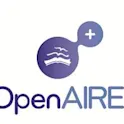
Open science policy
31 May 2016
Open Access to science papers will be default by 2020, say European ministers
By Emily Barker, Communications Strategist at Frontiers There was a breakthrough for open-access publishing on Friday 27 May, as EU research ministers published a commitment to make open access to scientific publications as the default option by 2020. “It’s a major step forward,” said EU Research Commissioner Carlos Moedas. “You cannot stop the movement. Publishers will have to change their business models.” What does this mean for science publishing? The open-access movement isn’t new. Already over 30% of peer-reviewed papers are now published in some form of Open Access, which means the tipping point for disruption has already come and gone. Frontiers, born digital in 2007, was the first open-access publisher to develop its own publishing platform that has not only revolutionized the peer-review process by making it more transparent, but has also helped advance research by publishing sound science rapidly while making it openly accessible to all. Unlike traditional publishing, the costs for open-access publishers are far lower as they have no costs for paper or printing distribution. However, that does not mean they are free. Open-access journals need editors and editorial support staff to maintain quality and a complex, scalable technological backbone for storage and to ensure the research they publish is always […]
